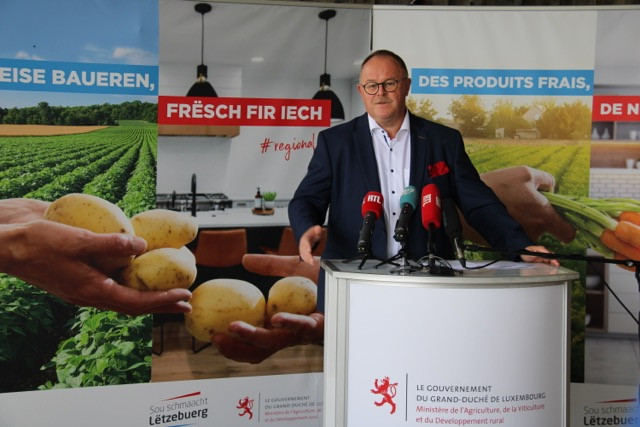Although the agricultural sector’s core activity was not interrupted during the health crisis, many farmers and suppliers lost out due to the closure of restaurants and catering facilities in institutions and private companies.
The €5 million package will include financial assistance for educational farms that suffered a loss of income during the confinement period when they had to close to the public and school classes were cancelled.
In addition, money will be dedicated to a programme to help promote local agricultural produce. And the package will also support diversification, innovation and investment in technology to enable the sector to address food, environmental and climate challenges.
Schneider thanked the entire sector for its exemplary commitment during the crisis in ensuring production continued and the supply of food was not interrupted. “The pandemic had a positive effect in raising awareness of the contribution of farmers work in the food chain, the true quality of their products, and the danger of too much food dependence on foreign countries,” he said.
In addition, Schneider explained how new legislation would be used to help the agriculture sector survive the legal vacuum left by the delay in the EU’s post-2020 Common Agriculture Policy negotiations. The new law allows for an additional €4.3 million in aid for farmers, focusing on the qualitative rather than quantitative aspect of investment aid, promoting innovative and environmentally friendly equipment, and promoting shorter supply chains.
